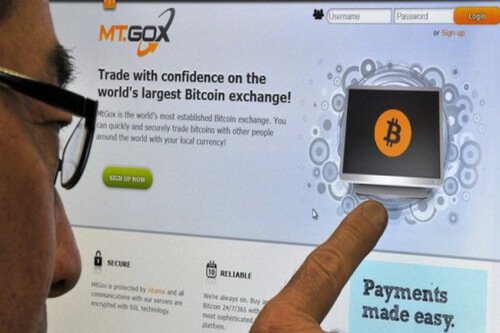Mizuho Bank has became ensnared in North American legal fallout from Mt. Gox which collapsed last month after losing $400 Million worth of customers’ digital currency.
The biggest lender in Japan called Mizuho Bank is involved in North American legal fallout from Mt. Gox. Mt. Gox used to be the most successful bitcoin exchange until it had collapsed recently and lost about a half billion dollar of customers’ investments in digital currency.
Legal actions in the US and Canada represent a new legal front, which struggles with Mt. Gox, which claims hackers stole the biggest part of its assets. Mt. Gox insists that there were systematic attacks on what it acknowledges was lax computer security.
The head unit of Mizuho Financial Group Inc., the second biggest bank in Japan, became a defendant to an US trial against Mt. Gox for allegedly aiding in a fraud by providing banking services to the exchange.
Plaintiffs claim that Mt. Gox have been taking money from its customers and assured them that things will get better as late as 23rd-24th February. But after it they stopped allowing withdrawals from its accounts and in a few days they announced bankruptcy.
After the filing of bankruptcy the company is unavailable for lawsuits in U.S. courts as the Tokyo case proceeds, due to Chapter 15. However, Chapter 15 protection cannot prevent the lawsuit from moving forward. Plus to that it covers only Mt. Gox KK, which is registered in Japan, but it does not apply to Mt. Gox Inc, Tibanne and Mark Karpeles.
Meanwhile, the US suit blames Muzuho in awareness of Mt. Gox’s fraud and of not segregating funds that belong to Mt. Gox from those of its. This led to losses for bitcoin customers. The complaint is sure that Mizuho profited from the fraud. What is more the Canadian claimant asserts that “all non-bitcoin currency received by the Mt. Gox defendants from its users was held in an account or accounts” at Mizuho.
”Mizuho knew of irregularities and serial complaints regarding Mt. Gox and eventually, long after it had profited from its illicit partnership, asked Mr. Karpeles to close his accounts with Mizuho voluntarily at some unspecified point in the future,” the plaintiffs allege in the conversation between a Mizuho Bank representative and Karpeles that the Wall Street Journal published last week
After that the complaint told that there are some information that proves that some amounts of Bitcoin that allegedly belong to Mt.Gox were being transferred to new account and their executives’ bank accounts.
It is not surprising that customers suspect a fraud. Mt.Gox claims that it had lost all 750,000 customer bitcoins it was holding, as well as 100,000 of its own and 2.8 billion yen in cash. It is roughly 7% of all bitcoins in circulation, considering $567 million of vanished assets at current market prices
The suit will proceed in a Chicago federal court.
